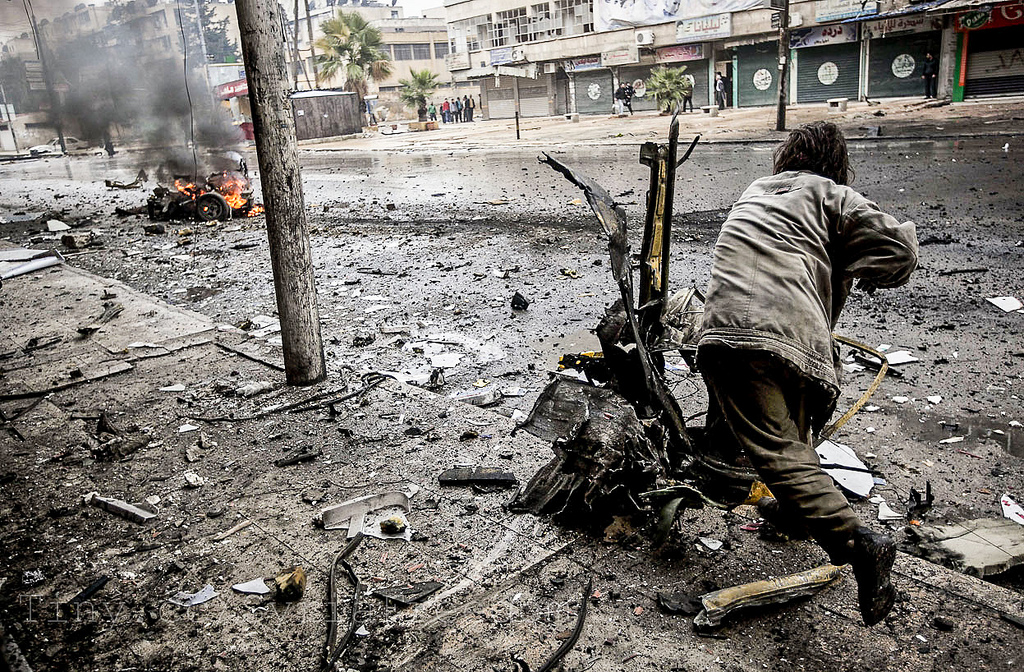On Sept. 8, Libertarian presidential candidate Gary Johnson made headlines after giving an interview on MSNBC during which he seemed to lack basic knowledge about the Syrian city of Aleppo. Asked by the host, “What would you do, if elected, about Aleppo?” Johnson responded “What is Aleppo?”
Johnson’s gaffe is embarrassing, but sometimes gaffes can be catalysts for growth and curiosity. Poll numbers show Johnson received considerably more searches on Google following his mistake, as did the question “What is Aleppo?”
Aleppo is the most populous and perhaps the most heavily affected of all Syrian cities by the civil war that has raged in the country throughout the last five years. It is the sight of ongoing battles between the regime of Syrian leader Bashar al-Assad, moderate rebel groups such as the Free Syrian Army and Islamic extremist groups such as ISIS and the Al-Nusra Front. The city is currently controlled by more moderate rebel forces in the western half and the Syrian government in the eastern half. The Syrian government has been attacking Aleppo for most of the past five years.
These are the cleaner facts that stay above the reality of war and terrorism that Aleppo faces. The citizens of Aleppo face deplorable conditions, without running water or electricity, while facing inhumane and illegal use of chemical weapons and barrel bombs—containers filled with pieces of metal designed to cause maximum injury—from their own government. At the same time, doctors in the eastern part of the city have reported constant bombing of medical facilities, also courtesy of Assad’s forces.
The casualty count in Aleppo is difficult to estimate but is likely to be a large portion of Syria’s casualties, which total almost 500,000, according to the Syrian Center for Policy Research. The human toll of government attacks on the city is even more sobering when viewed through the eyes of children. Scott Simon of NPR reports many cases of children and parents taking their own lives in Aleppo and surrounding cities. Photographs such as the one of 5-year-old Omran Daqneesh, depicting the toddler awaiting treatment after surviving a government bombing attack while bloody and covered in dust, draw attention to the horrific nature of this war.
All of this tragedy is well-documented and shared thanks to the work of Syrian rebel media groups, embedded journalists and the power of social media. With such awful (and likely criminal) actions being taken by Assad against his own people, we should ask, “What is Aleppo?”
When I say this, I mean we should ask ourselves what it means when a government can commit such atrocities without being stopped, and what America is doing to end these crimes. President Obama’s failure to take real steps to stop the actions of Assad should be remembered as a permanent stain on his legacy.
It began in 2012, when Obama declared that although the U.S. was not deploying troops to the Syrian conflict, the use of chemical weapons by Assad would be a “red-line,” which would force America to reconsider its involvement in the war. Foreign policy analysts would call Obama’s declaration a “commitment trap,” and when Assad’s regime used chemical weapons on civilians a few months later, President Obama was faced with a choice to follow up on his word or not. He chose not to mobilize against Assad.
He has unfortunately continued to refuse to do so, as evidence of Syrian war crimes from Assad’s government stare him in the face. His decision not to apply a no-fly zone over Aleppo before the Russian Air Force became involved in the war and his lack of commitment to funding and training moderate rebel forces have only enabled Assad to continue his crimes.
Now, with signs of a recent cease-fire agreement breaking down, it has been reported that the Syrian government is barring United Nations aid trucks from reaching the civilians of Aleppo. With a city full of starving, sick and injured Syrians living in deplorable conditions courtesy of their own government, we should be asking again: “What is Aleppo?” And we should be directing this question to the person with the most power in the world to help.
Sam Wallace is a public policy graduate student. He can be reached at samhwallace@gmail.com.



